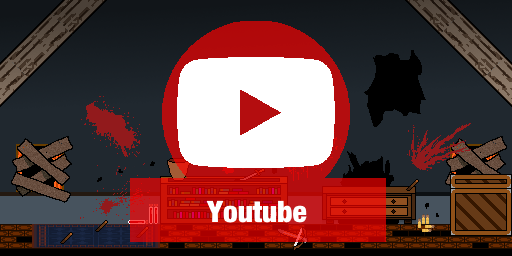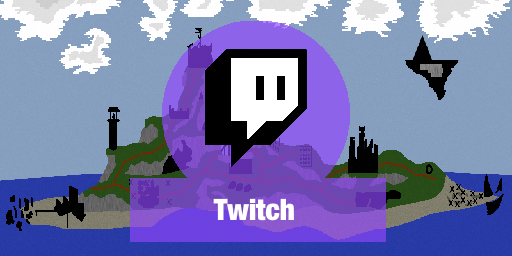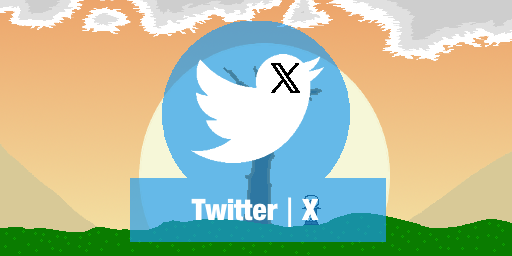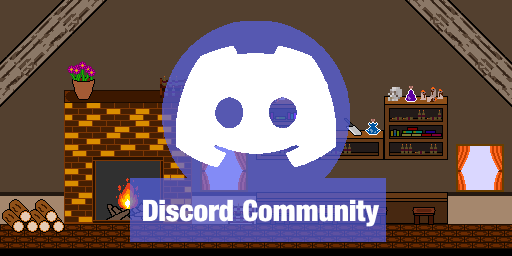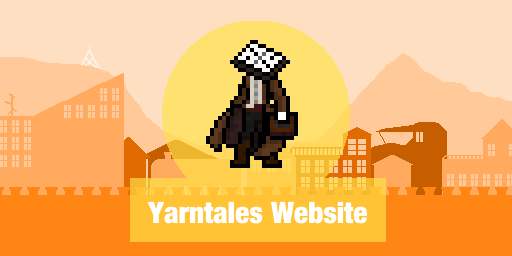Assignment Overview
Published in 2023 for the Univeristy of Otago, Class SOCI302 by Caleb Ewins
Word Maximum 1500 (+/- 10%) Max, Entry Count of 7, had to apply various different sociological theory concepts to every day things with the recommendation of doing it on music. Permission to do it on games was granted on request.
The Hyperopia of Fantastical Dystopias
Media is a flexible medium by which to explore and analyses social phenomena. Although, video games intrinsically require the active engagement and control of the user. It has laterality absent from other mediums like movies, it confronts with challenge. Decisions that shape a variety of predetermined outcomes that reflect individual efforts and experiences. Games explore history, politics, world wars and more in worlds that are made to closely resemble or hyperbolize their topic of interest. Hence a Hyperopia, a far-sightedness in presentation of their inspirators with observational patternable social theory therein reflective of some of what can be seen or perceived today.
Entry One: Turbo Overkill - Capitalist Realism
Today there is a calling for more cyber-futuristic themes across media. Its people are uncaring and cheerful despite lives of trauma, modifying their bodies with weapons to cause more suffering. Imagine the contrast though that once you start shopping at a vendor their speech is friendly, cheerful, and hopeful with occasional jests and claims things will get better if you buy their product. The world is intrinsically capitalistic but also ideologically circular in its foundations. People are weapons, and they’re fighting for health, security, and more weapons, the capitalist masters of the world simply permit it.
The game demonstrates an immense disconnect between these capitalistic overlords that provide people with the means to commit harm and damage with no more than a smile and a generated voice of encouragement. Nearly everyone has access to weapons and fighting for survival is an accepted fact of life. There is no escape from their influence, and comparatively, to the real world, I wonder about the meaningless wars started by old men in positions of capitalistic power. Inevitably there must be more to it, but on a surface perspective, Turbo Overkill feels that disconnect, that power, that inescapability without a shred of empathy from the rich. Rebellion, victory, war, and your own chance to survive is monetized and controlled despite even God-like horrors, its reach feels boundless.
Entry Two: The Talos Principle - Aesthetic Social Theory
In worlds where humans have long gone, and simulated machines yet to attain physicality solve puzzles, communicate with god (Elohim), talk philosophy with a nihilistic librarian program, and listen to time capsules of people long past, there exists a melancholy of what was and is desperately being held onto in a world of fakeness. The humans who’re gone talk of the world they lived in, building weapons with no semblance of concern for the preservation of humanity and culture. The machines they built are exposed to these cultures, each with referential plants that foretell human achievements.
Machines are all that’s left of the humans lest their structures only serve as their graves. In spite of all of this, hints of hope are scattered in the ruins. It seems everyone, including god and the machines, is fearful the aesthetics of humanity, will be lost. But as Alexandra Drennan says, “as long as people still walk, nothing is lost”, fearing loss of humanity I feel is real in the modern era especially considering the artifacts we fondly remember. We don’t want our cultures, families, and friends to be lost. The Talos Principle embraces that fear, regardless somehow humanity remains, and the meaning of that means something. But the form in how it remains, and the meaning thereof, are variable, yet irreplaceably powerful.
Entry Three: Bone Labs - Disappearance of Self
Bonelabs deliberately presents itself as an unfinished and basic virtual environmental space. One must play it in virtual reality but everything about it is both immersive, but obviously fake and empty. When you first enter the game space, you are nobody with a bag on your head going on a long linear journey that feels aimless and mystical. Its bleakness demonstrates a lack of focus, a constant shift of attention from firefights with null bodies, to a mineshaft ride, to a whole moon to traverse. Like a haze of a dream, nothing connects. This amorphism is topped off with a giant human avatar whom you meet, who tells you “I don’t need a player, I need a game master”, you become a body of many bodies, and those bodies are supposed to be yours, but they’re not.
Here the disappearance of self is perceivable in physicality. To access VR requires an absence from reality, to escape into this new space. Bonelabs environments and structure simulates a similar experience to flipping through video clips on a phone, the same radio plays the same song, the same texture can be seen from start to finish, yet we engage with every environment aimlessly. We overconsume these avatar bodies, and the environments as one subject. Whole maps may contain just you with seemingly endless items and distractions. The game makes you generate distance from yourself up until you stop playing. You reappear.
Entry Four: Modified Minecraft - Science and Technic Futurism
Minecraft has a strong reputation as a game of creativity and expressionism. It’s a world made of cubes that invite people to turn a world into whatever they see fit within the bounds of the content of the game. Minecraft isn’t very technological; it actually houses a very classically naturistic structure in which beauty and art are king. But when you modify it, Minecraft become a “kitchen sink” of items and systems. My home, now a factory, is a site where oil is pumped, I generate nuclear energy, and fire lasers to drill into the earth and create automated systems that reduce my workload. The art I cared for becomes a canvas for technics.
I came to appreciate the metaphysical perspectives of Bernard Stiegler. Once I exhausted my options as a human actor I turned to technology, I reshaped Minecraft into something else without a second thought. Lucious valleys of flowers where a cabin once proudly stood built by me became a baron wasteland of something that was with a backdrop of technology that eats the world. It's melancholic and intoxicating, but then I think about the real world. Minecraft is an accelerated world, but still, something gnaws in my head that perhaps what I see in modded Minecraft is a future that could be as the real world also technifies to degrees that have the world biting its nails in anticipation. Its futurism replacing nature in carelessness and excess.
Entry Five: Little Inferno – Social Reproduction Theory
“Just sit by your fire, burn all of your toys, and stay warm” is the façade message you here in Little Inferno repeated. The world outside is getting colder, and most people have taken to staying in their homes with a purchased “Little Inferno Entertainment Fireplace” burning stuff to stave off the cold. You buy items, and after buying them you wait for them to arrive, and then you burn them. After burning you make a profit so you can buy more. During the game, a neighbour sends you messages pointing out the pointlessness and strangeness of what you and she are both doing, even saying “Could you turn around if you really wanted to?” but the perspective remains always fixed on the fireplace.
It feels on the nose, how the reproduction of life is almost despised in that you cannot look away and must keep burning stuff. Your friends at a point stop messaging you once they’ve managed to “look away” from the fireplace and move on with life until they remember you again. A message I kept wondering about was “I am burning away the time”, I don’t seem to do anything but engage in these systems of buying, burning and more buying. There is no reproduction outside the joy of burning things. To stop burning is to freeze, to look away from the fire requires more than just turning around. I had to burn my house down, I shattered the production of the fire to attain social reproduction.
Entry Six: VA-11 Hall-A – Queer Theory
Glitch City is a city unlike that of the real world. It's hyper dystopian and you're a bartender called Jill in a hopeless alley bar to serve drinks, chat people up, and change lives to the sound of music. The bar doesn’t have many patrons to start with, but as you get more folks in, you start to see familiar faces who have stories to tell some grim and some that reflect minority struggle in a cyberpunk world that exists outside the bar.
This game is built as a socialisation simulator almost, a literal allegory for the bartender consoling the patron trying to drown out sorrows for the moment. Many patrons are queer/LGBT, and on them are very esoteric choices of consumerist expression, people with uniquely coloured hair, or have undergone procedures of “catification” to get ears of a cat on their head. The bar Va11halla becomes a place of meeting up, of belonging. It becomes a way to carve out a life path for the patrons, whilst around them is a world where belonging is merely a suggestion. The expressions they bring with them reflect who they are in both class and origin.
But it is also your job, and the job funds your home and luxuries in which you decorate with Jill's interests some even reflecting her own queerness, they indulge in queer consumerism. Then you go back to work to start all over again.
Entry Seven: Divinity Dragon Commander: Decolonisation Theory
To be the dragon commander is to be the autocratic master of a kingdom under great war and scrutiny. It requires strategy in both war and politics, and it's difficult to always do the right thing in your own eyes. Decolonization theory is somewhat loosely tied to Dragon Commander, as the ethnicities of the world tend to all exist under the same social hegemony with their conflicts being defined politically.
The races are everywhere, but civilisations that facilitate them have to individually consider each of their customs in both developing and developed locales. It's an aggressive multiculturism where a lot of the norms seem to mostly conform to humans, of which the dragon commander is a half-breed. With each decision you make one or more of the races disagree lowering their favour, and sometimes the decisions you make are necessary to win the ongoing war in Rivellon. At one point I had to weigh desecrating an elven heritage site for resources. I had to weigh carefully the consideration and efforts I put into respecting the cultural beliefs and ideals of each person.
But the ultimate thing I realized was, all these political decisions I had to make weren’t always about the war, they were undoing a standard that did not consider the people it squandered like the gender wage gap, the press, race relations and more. In the political phase, it was an effort of the Ethic of Restoration that ground against the war effort. It was a balancing act not of domination, but an attempt at equal solidarity as good as I could attain.
References (For images that are not included here)
Bradyaidanc (2022). Mekanism Mod (1.19.2, 1.18.2) - High-Tech Machinery. [online] 9Minecraft | The Best Resource for Minecraft. Available at: https://www.9minecraft.net/mekanism-mod/ [Accessed 10 Oct. 2023].
Chick, T. (2013). Dragon Commander asks tough questions. [online] Quarter to Three. Available at: https://www.quartertothree.com/fp/2013/08/06/dragon-commander-asks-tough-questions/ [Accessed 10 Oct. 2023].
Donlan, C. (2023). Game of the Week: Turbo Overkill and the joys of video game excess. Eurogamer.net. [online] 11 Aug. Available at: https://www.eurogamer.net/game-of-the-week-turbo-overkill-and-the-joys-of-video-game-excess [Accessed 6 Oct. 2023].
Fuller, M. (2022). How to unlock characters and avatars in Bonelab. [online] Gamepur. Available at: https://www.gamepur.com/guides/how-to-unlock-characters-and-avatars-in-bonelab [Accessed 10 Oct. 2023].
GameUIDatabase (2012). Little Inferno. [online] Game UI Database. Available at: https://www.gameuidatabase.com/gameData.php?id=712 [Accessed 10 Oct. 2023].
Steam (2015). The Talos Principle: Road To Gehenna DLC. [online] store.steampowered.com. Available at: https://store.steampowered.com/app/358470/The_Talos_Principle_Road_To_Gehenna/ [Accessed 10 Oct. 2023].
VA-11 HALL-A: Cyberpunk Bartender Action (n.d.). Cyberpunk Bartender Action VA-11 HALL-A. [online] waifubartending.com. Available at: https://waifubartending.com/ [Accessed 10 Oct. 2023].
